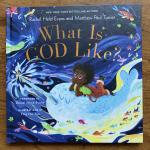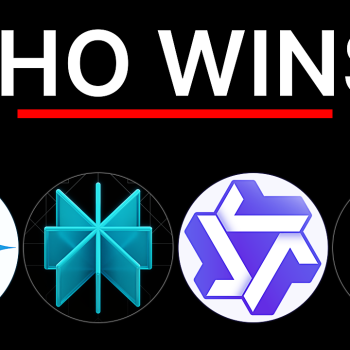When people are asked what distinguishes a robot from a human being, they will often point to the potential of the latter to act freely, and thus to surprise you. And yet human beings – at least when considered in larger groups – act in ways that are repetitive, traditional, and thus often predictable. For this reason, when it comes to the question of how historic human religious traditions will respond if artificial intelligence in the fullest sense is developed, we have less need to rely on fictional scenarios depicted by authors of science fiction. Instead, we can focus in on the concrete data of how religions have responded to new scientific data in the past.
The history of how religious traditions such as Judaism and Christianity have responded to new information from the natural world – in particular since the rise of the natural sciences – has been traced and documented more than once, and from a variety of angles. Does their past history allow us to detect patterns that are likely to be seen again when dealing with newer topics, such as artificial intelligence? Having seen how scriptures have been and continue to be interpreted and reinterpreted in response to the work of Copernicus, or Newton, or Galileo, we can feel confident that there will be a variety of responses to new scientific developments and new technologies. But can we foresee what some of those are likely to be, in response to the development of full-fledged artificial intelligences? Even though at present such sentient machines are science fiction, and may or may not one day become science fact, it is worth thinking about such topics, whether to prepare for the future and not be caught by surprise, or simply because considering the subject proves a useful exercise in its own right.
Those raised within the narrow confines of young-earth creationism and similar viewpoints may genuinely believe that they are being “biblical literalists,” and that certain things not mentioned in the Bible – whether evolution, millions of years of Earth’s history, aliens, or sentient machines – are by definition excluded from the realm of possibility simply because of their absence from their sacred scriptures. But for the mainstream of Christianity, historically and in the present day, there was no feeling of obligation to understand the depictions of the cosmos in the Bible literally, since they not only stood at odds with philosophical assumptions and observation at times, but tensions also exist between passages within the Bible itself which speak about the creation. Yet even for those who look to the Bible for principles that can be transferred to new situations, rather than detailed answers to modern-day scientific questions, would not the creation of human beings in the image of God, as depicted in Genesis 1:27, preclude the possibility of artificial intelligences being capable not only of consciousness, but of relating to God in the way that humans do? The answer is “not necessarily.” Reading further in Genesis, we are told that Adam “became the father of a son in his likeness, according to his image” (Genesis 5:3). If there is one thing that we can say about our attempts to create artificial intelligence thus far, they are patterned on the human brain as prototype. And so if we create artificial living things – whether based in silicon and machinery, artificially-crafted biological components, or something else yet to be invented – there is no inherent reason why (from the perspective of those traditions shaped by Biblical literature) they should not be expected to engage in the kinds of practices, and have the kinds of experiences, that biological humans have.
Other religions will confront different issues and approach the matter from a slightly different perspective. Hindus and Buddhists, for instance, may be concerned with whether humans can be reincarnated as robots, and vice versa, while Muslims and Christians might equally debate what if anything it could mean for an android to participate in resurrection. However, if the history of religious exploration of new scientific discoveries suggests anything, it is that the gulf between different religions on this topic, or any other for that matter, may prove to be less great than the differences between fundamentalist branches of religions on the one hand, and their mainstream adherents on the other.
What actually turns out to be the case, however, could eventually challenge the preliminary conclusions drawn when the issue is still hypothetical. For instance, if artificial intelligences were to prove inherently unable to embrace religious teachings, to contemplate God, and/or to explore the spiritual, despite showing evidence of being genuinely sentient in a manner otherwise similar to biological humans, then that fact would undoubtedly provide a starting point for a crucial line of research at the intersection of religious studies, theology, neuroscience, psychology, and computer science. Figuring out why this should be the case would offer insights into the religious aspects of human existence. (The discovery of intelligent extraterrestrial life forms that lacked religious instincts and sensibilities could have a similar impact).
In the meantime, we are left to explore these matters primarily in the realm of the imagination and storytelling. With guides like Isaac Asimov and Ron Moore, we have ample opportunity to give these questions the serious investigation and reflection they deserve – before they become pressing real-life concerns, at which point it may be too late to engage these difficult questions with the appropriate dispassionate distance and objectivity. But complementing the role played by storytellers and authors of fiction, we have scholars like Noreen Herzfeld – one of only a small number of individuals to bear the title “professor of theology and computer science.” In her article on “Artificial Intelligence” in the Encyclopedia of Science and Religion, Herzfeld writes, “The quest for artificial intelligence reveals much about how people view themselves as human beings, and the spiritual values they hold.”
In other words, not only the stories that we tell, but also the computer projects that we consider to be worthwhile or not worth pursuing, reveal a great deal about our outlook on what makes us human, irrespective of whether or not it eventually turns out that these things can be replicated artificially.
Also of possible interest (although not limited to AI, but since there’s ET and UFOs we can lump them together under the heading of things known by initials):
https://m.youtube.com/watch?fbclid=IwAR13iWvNCO4BrWcCJ6ZaftSfjiqF9f68ZPo6dHsvj6V6Fr478PqcOTSvsVE&v=m4ZbLftPtYg&feature=youtu.be
Overrun with Messiahs: The Great (Esoteric) Awakening of the 1920s
David Brin blogged about more marvels from space and facing the future post-Covid
Federal authorities cannot confirm or deny that UFOs are alien spacecraft
Aliens might not need warp drive to conquer a whole galaxy
New quantum microscope can see tiny structures in living cells
Jeff Bezos is heading into space
NASA has provided Mars rover updates
The ESA’s plans for the next decade of space exploration
Honolulu police department purchased robot dog with CARES funds
And finally, Mike Heiser’s views on the Tic Tac UFO













